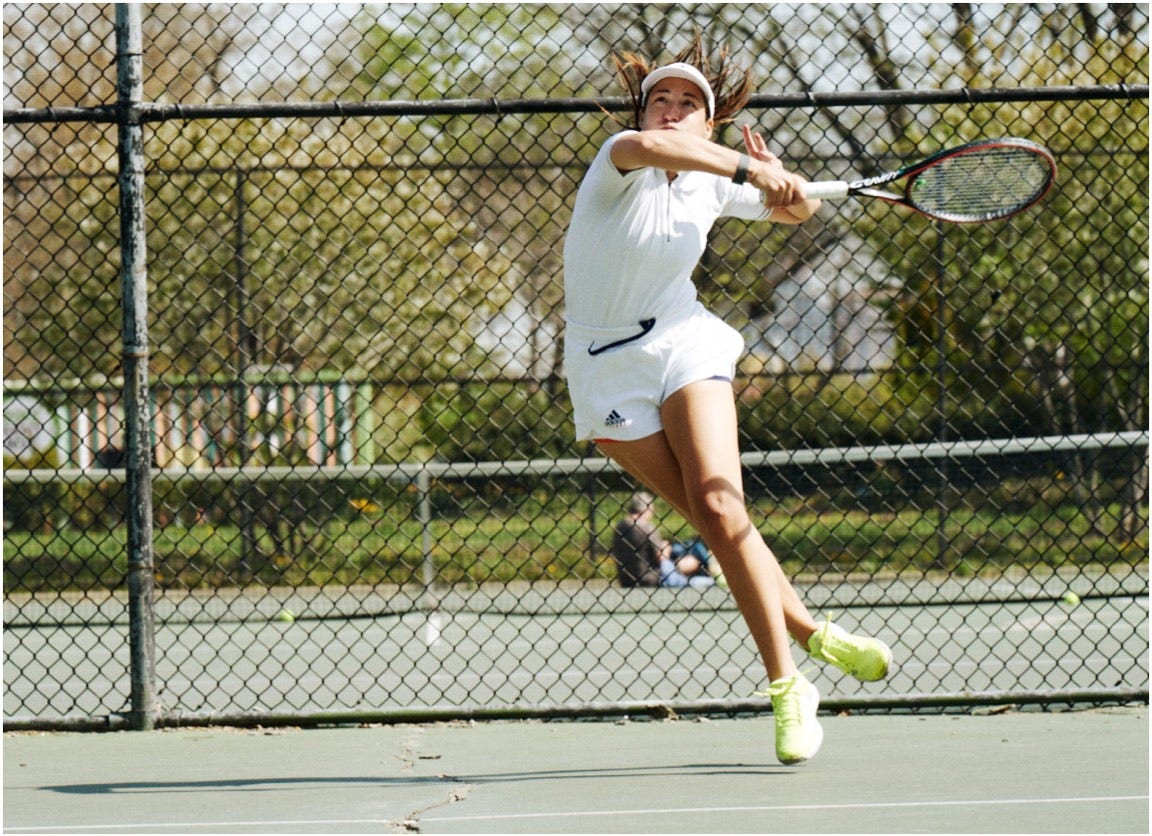Nissue #21: Caitlin Thompson, Publisher and Co-Founder of Racquet Magazine.
I didn’t realize it at the time but when I was a young tennis fan growing up in the 80s, we were all witnessing what is now considered the golden age of the sport, with outsize personalities and players like John McEnroe, Jimmy Connors, Martina Navratilova and Chris Evert dominating the court. The game has had plenty of stars since, of course, but there’s something about that time where the game somehow felt more alive, memorable, and even romantic.
Years later, when I came across Racquet Magazine on a newsstand, I knew that I was not alone. Here was a beautiful print magazine with curious stories, thoughtful essays, and gorgeous photos that spotlighted up-and-coming players and took risks while still having some fun.
I reached out to Caitlin Thompson, the co-founder of Racquet, and she was game for the interview. As you’ll see, her answers are like aces, yet it would be remiss of me not to mention that Caitlin remains undefeated as the titleholder of the Missouri Tennis team’s pizza-eating contest (13 slices), an important distinction not often found in publishing.

Nish: What is your idea of perfect happiness?
Caitlin: A day spent somewhere warm where I can play tennis, work while watching tennis and then come home and cook dinner for my family. Productive leisure.
Nish: What was your worst job ever?
Caitlin: I spent about half a day as a waitress at a townie bar in Columbia, Missouri where I studied journalism and played on the tennis team. Thankless, exhausting, and humbling. I quit after lunch service and forever tip waitstaff well.
Nish: What was your first job ever?
Caitlin: Coaching Summer tennis camp at Georgia Tech as a teenager. It was so so so fun to realize I’d absorbed all these lessons and drills myself and get to pass them on and play with younger kids just starting to learn the game. And I got paid almost minimum wage!
Nish: What was your best job ever?
Caitlin: Running Racquet with my best friend David has been truly the most rewarding and creatively fulfilling job I’ve ever had—and ever hope to have. I’m so thrilled to be able to put my decades in media to use in service of something I really believe in (and not having to grapple with my authority issues) while attempting to make this sport a better one that remembers how often it has found itself on the right side of history.
Nish: What is the trait you most deplore in yourself?
Caitlin: I’m relentlessly judgemental and I’ve had to work hard to try to realize that everything is not for me.
Nish: What is the trait you most deplore in others?
Caitlin: A lack of self-awareness. I’ll accept almost anyone who understands their own headspace and owns it.
Nish: What’s some advice you’d give to yourself at 23?
Caitlin: Chill out, you’ve got time.
Nish: What is your greatest extravagance?
Caitlin: Attempting to play tennis every day.
Nish: You have exclusive dinner reservations for 4, excluding family and close friends, who are the 3 people (alive, dead or imaginary) you’d invite?
Caitlin: Definitely Werner Herzog, he’s so fearless and alive. Also Fran Lebowitz for comic relief and Arthur Ashe, so he can talk about showing up in South Africa to crush apartheid while looking fresh with his Rolly and popped collar. Truly a man with the range.
Nish: What is the theme song of your professional life?
Caitlin: It’s technically a Beastie Boys song, but I like to think of it as a Santigold track: Don’t Play No Game That I Can’t Win. I think a lot about how both tennis and business are the game, but there’s also the game within the game.
I’ve spent the past few years trying to get a handle on both—especially as a woman in the worlds of sports and entrepreneurship—and I love how this song reinforces that some games aren’t set up for me to succeed, so I’ve got to reframe the terms of engagement so that I can.
Nish: What is your motto?
Caitlin: Stay positive but keep your head on a swivel.
Nish: What is something you’re really excited about right now?
Caitlin: The way the game of tennis is rapidly changing—both by starting to embrace its own history of being on the right side of conversations about gender, sexuality, and equality—as well as the opportunities it has to grow the tremendous amount of grassroots interest it now has around the world.
End Interview.
Still feeling sporty? Then check out my interviews with Matt Futterman and Jonny Moseley!




